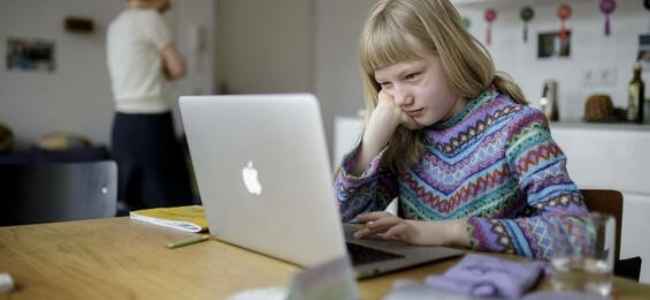Jumping rope, weeping outbursts, and online studying are all activities that I enjoy. Some families benefit from homeschooling, while others do not.
We invited audience to share with us about their homeschooling experiences. To begin, here are three reports. We found a large amount of responses and will continue to update this content.
A PERPETUAL EMAIL RACKET
“We have 3 kids: first-grade and a twin fourth-grade. Everyone goes to the same all-day school. We were already at the Corona home office when the decision to shut the school was made. Email was used to send out a lot of information and homework.
Several times a day is not uncommon. This results in a constant cacophony of noise with three youngsters. In terms of communication routes, tools, and other resources, there were no defined methods. Teaching materials were scanned or photographed in such a way that when printed, they quickly deplete the toner. Despite the absence of infrastructure, diary entries and assignments were expected to be provided on a regular basis.
Blind activism
Teachers tried to be inventive when it came to blind activism, assigning activities such as “get a skipping rope and start counting; observe how many times you can jump without stopping.” “Wonderful!” I would have happily said. Please tally how many vases and chandeliers have been shattered, as well as how many blue eyes the siblings have received. We live in a city apartment, work from home all day, spend the majority of our time on video conversations, and have departure restrictions.” Overall, I had the feeling that all of my responsibilities had been shifted to my parents all of a sudden.
It seems a lack of awareness about the need of parents continuing to work. Not only were a few pieces of homework provided, but the students were also expected to keep up with the curriculum at full pace. The parents were not given any information or assistance. However, adolescent level studies are pretty different. For instance, A level chemistry tutors keep parents in loop about their children’s performance.
Standardize tools and channels? No way
To be honest, I expect instructors and educators who are not exempt in the current scenario to continue to carry out their instructional responsibilities to the fullest extent possible. I’m supposed to keep performing my work, too. After all, we’re all still getting paid in full.
This criterion is not met by a weekly one-hour consultation hour for the whole class. Because the instructors appear to be overloaded, I offered help in terms of resources and infrastructure, but I received little response.
The question of whether the school could agree on methods, tools, and channels so that parents would have less administrative work was answered simply: “We don’t have the opportunity.”
A daily effort of twelve hours is required.
The amount of work I’d have to put in right now would probably be around four hours per day, and I’d have to do it with a child (i.e. twelve hours a day with three children). I decided to set priorities after the first two weeks and many frantic outbursts of sobbing from the children who couldn’t keep up with their homework and felt under pressure.
For the children, this is also a very stressful scenario. Their usual lives have been disrupted, and they now have to worry about if Grandma and Grandpa are in danger, or whether Mom and Dad will die because they are becoming old.
Pure chicane
It is more essential to me that the children are happy and healthy, that they feel safe, that they get some fresh air at least once a day, that nutritious meals are prepared, and that they participate in meaningful activities throughout the day. The last thing the kids need right now is for their parents to shout at them because they can’t do their arithmetic homework.
The last thing the parents need is to have to scan in extra chores on a regular basis, such as journal entries, painted images, or other occupational therapy measures. “Hey, I know you can paint fantastically, and nobody forces you to keep a diary,” I tell my children. Let’s make sure we keep practicing written multiplication and that our language is correct.”
Nonetheless, we will have a lot of catching up to do over the Easter vacations, and we will be unable to accomplish it all. I’ll also say “No” to some things if I don’t want to do them. That’s foolishness and sheer chicanery, and I’m not going along with it!” There are certain bright spots at the day end.
My kids are starting to understand what I do for a living; they’re learning a lot (almost too much) about personal responsibility, personal rights, a sense of responsibility, how to make sourdough, the difference between viruses and bacteria, the economy, social cohesion, and which heads of government are dealing with the crisis. My opinion is that homeschooling is only effective under specific circumstances.
Frequently Asked Questions About Homeschooling and Distance Learning
What is distance learning?
Distance teaching serves to ensure the educational success of the pupils if classroom teaching is not completely possible due to infection protection during a pandemic.
What is the difference between distance learning and homeschooling?
The terms are often used colloquially synonymously. However, distance learning tends to mean interactive and communicative formats, for example teaching via video conferencing, while homeschooling is more aimed at self-directed learning.
Is it compulsory to take part in distance lessons?
If the technical requirements are met, distance lessons are usually compulsory. The presence of the students can be checked.
What is hybrid teaching?
In hybrid lessons, part of the class is taught face-to-face, while the other part of the group is connected via video.
How do you switch between face-to-face and distance teaching?
Schools developed different approaches and ideas for distance teaching during the pandemic. We have many of them on the school portal successful concepts described in detail. For example, StudyMind has evolved the idea of distance learning. During the corona pandemic, she designed “School @ Home” and “School @ School”. This includes that the pupils not only simply work through their tasks at home, but are supported in their learning process by the teachers, continue to experience the school as a community and experience a structured everyday life. The school sends the lessons from anywhere to anywhere and is thus able to react flexibly to different circumstances – whether pure distance learning or hybrid lessons with partial presence in the school.
How is your experience with distance learning? Can it replace face-to-face teaching? Where are the limits of teaching by video? And which elements would you like to keep, even if normal operation is possible again in the schools? Use the comment function and share your opinion!

